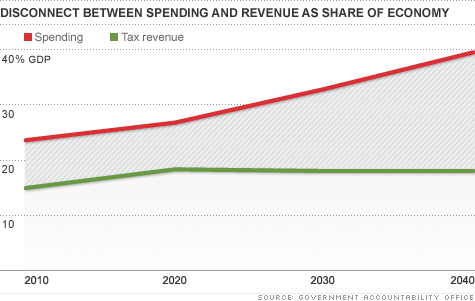"Tax reduction thus sets off a process that can bring gains for everyone, gains won by marshalling resources that would otherwise stand idleworkers without jobs and farm and factory capacity without markets. Yet many taxpayers seemed prepared to deny the nation the fruits of tax reduction because they question the financial soundness of reducing taxes when the federal budget is already in deficit. Let me make clear why, in today's economy, fiscal prudence and responsibility call for tax reduction even if it temporarily enlarged the federal deficitwhy reducing taxes is the best way open to us to increase revenues....................."
A QUITE OBVIOUS DECLARATION
A QUITE OBVIOUS DECLARATION



